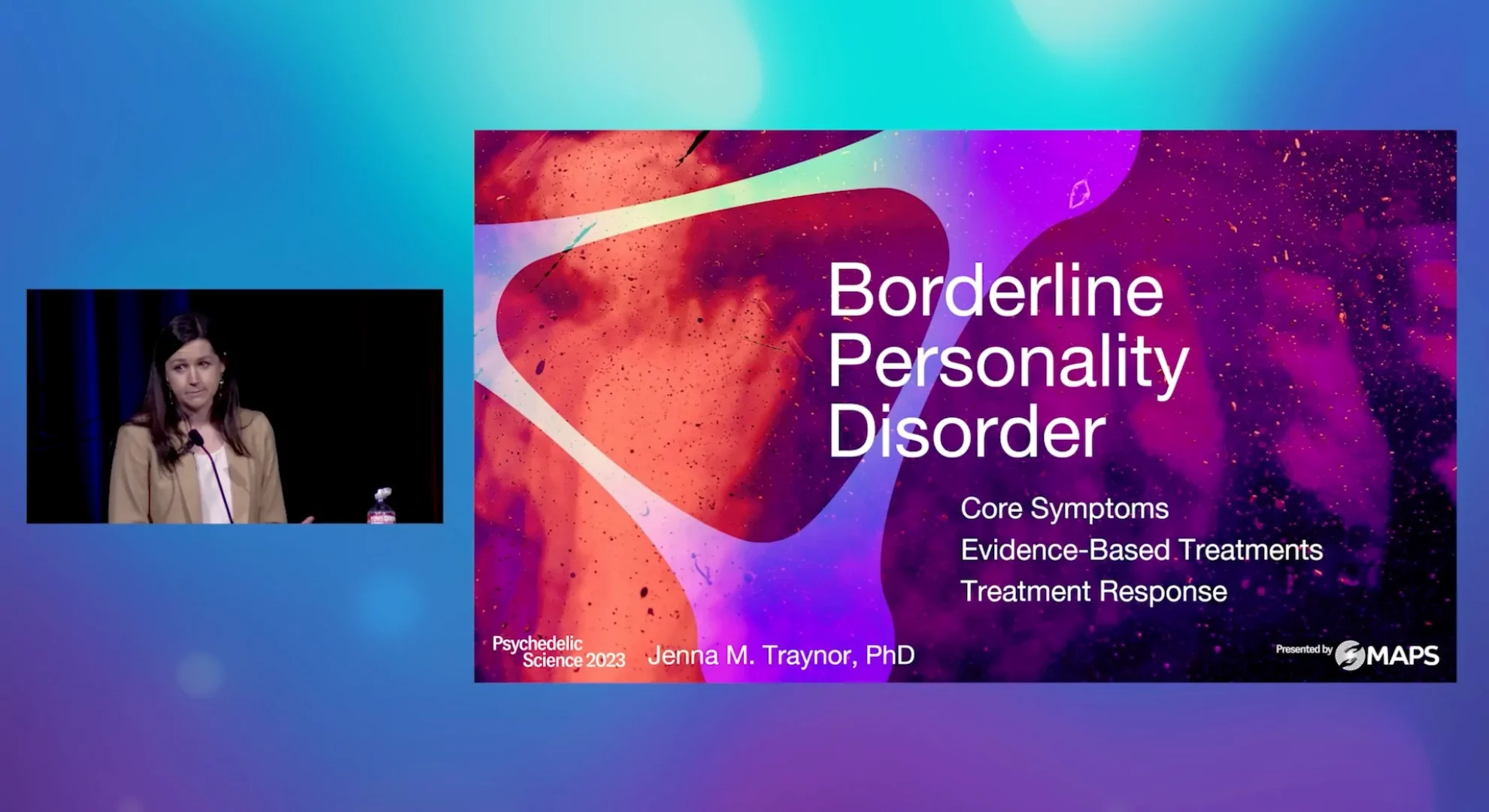
Borderline Personality Disorder and the potential of psychedelic-assisted therapy
Borderline Personality Disorder (BPD) is a complex mental health disorder associated with an elevated risk of suicide and extreme functional impairment. At present, there are limited treatment options for BPD. Available options are associated with large variability in outcomes and high dropout rates. As such, there is a need for new BPD treatments that can improve outcomes. This symposium will focus on the potential for psychedelic-assisted psychotherapy for BPD. Dr. Richard Zeifman, Ph.D., will begin by presenting data from an observational study that examined the effects of psychedelics among individuals with a likely BPD diagnosis, including outcomes related to mental health, safety, and mechanisms of change. Dr. Jenna Traynor, Ph.D., will then present a recently published review (Traynor, Roberts, Ross, Zeifman, & Choi-Kain, 2022) that outlines the promise for research on 3,4-methylenedioxymethamphetamine (MDMA)-assisted psychotherapy for BPD (MDMA-AP). Dr. Daniel Roberts, MD, will end by presenting a developing protocol of the first-ever clinical trial to investigate the safety, feasibility, and preliminary effects of MDMA-AP for comorbid BPD and posttraumatic stress disorder. Taken together, this symposium will provide a theory-driven overview of the potential for psychedelic-assisted psychotherapy in BPD, highlighting initial treatment targets, promising initial findings, and considerations for designing clinical trials.
Share: Borderline Personality Disorder and the potential of psychedelic-assisted therapy
Facebook
Twitter
LinkedIn
Email




